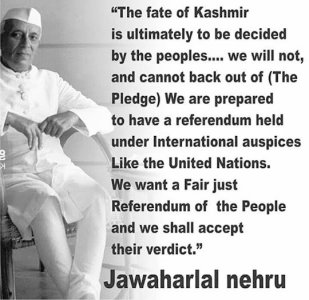Explained: Wheel moves on J&K-Article 370 petitions before SC, what’s under challenge in these cases?
The Supreme Court has said it will consider listing for hearing petitions challenging the abrogation of Article 370 in erstwhile Jammu and Kashmir. How many pleas are pending before the court? Who has filed them? What is under challenge?
Earlier this week, the Supreme Court said that it will consider listing for hearing petitions challenging the August 2019 decision of the central government to make changes to Article 370 that gave special status to Jammu and Kashmir, and to reconstitute the erstwhile state into two Union Territories of Jammu and Kashmir and Ladakh.
So how many petitions are pending before the court on this issue?
As many as 23 petitions on this issue are currently before the Supreme Court.
Who has filed these petitions?
A wide range of lawyers, activists, politicians and retired civil servants are among the petitioners.
They include advocates M L Sharma, Soayib Qureshi, Muzzafar Iqbal Khan, Rifat Ara Butt and Shakir Shabir; National Conference Lok Sabha MPs Mohammad Akbar Lone and Hasnain Masoodi, CPI(M) leader Mohammed Yousuf Tarigami, the Jammu and Kashmir Peoples Conference, Kashmiri artist Inder Salim, and journalist Satish Jacob.
Also among the petitioners are Radha Kumar, a former member of the Home Ministry’s Group of Interlocutors for J&K, Hindal Haidar Tyabji, a former Chief Secretary of J&K, retired Air Vice Marshal Kapil Kak, retired Major General Ashok Kumar Mehta, Amitabha Pande, a former Secretary to the Inter State Council of the Government of India, and Gopal Pillai, a former Union Home Secretary.
Former IAS officer Shah Faesal, activist Shehla Rashid, the People’s Union for Civil Liberties, and the Jammu and Kashmir Bar Association have also petitioned the Supreme Court.
What is under challenge in these petitions?
The petitions challenge the Presidential Orders of August 5 and 6, 2019, as well as The Jammu and Kashmir Reorganisation Act, 2019.
The August 5 order — Constitution (Application to Jammu and Kashmir) Order, 2019 — passed in exercise of the power under Article 370(1)(d) of the Constitution, superseded the 1954 Presidential Order that introduced Article 35A (which empowers the state of Jammu and Kashmir to define who is a permanent resident and make special laws for them) into the Constitution.
The Order, which said the provisions of the Constitution of India shall apply to J&K, added that references to the Sadar-i-Riyasat and the Government of J&K shall be construed as including references to the Governor of J&K acting on the advice of his Council of Ministers, and reference to Constituent Assembly of J&K shall be construed as reference to Legislative Assembly of J&K.
The August 6 Presidential Order revoked the special status granted to J&K under Article 370.
The Jammu and Kashmir Reorganisation Act, 2019 reorganised the state of J&K into the UT of Jammu and Kashmir and UT of Ladakh.
A few petitions also challenge the constitutional validity of Article 370 and Article 35A.
One petition challenges the delimitation exercise being carried out in J&K, saying it violates the right to equality.
What is the status of these petitions?
Some of the petitioners were of the opinion that the petitions should be referred to a seven-judge Bench citing conflict of opinion between the decisions of the SC in two cases — ‘Prem Nath Kaul versus Jammu and Kashmir’ in 1959 and ‘Sampat Prakash versus Jammu and Kashmir’ in 1970 — about the nature and extent of Article 370. Both these cases were decided by five-judge Benches of the court.
A five-judge Bench of the SC, which heard the prayer, however, rejected it on March 2, 2019. The court did not agree with the argument that there is a direct conflict between the two judgments, and said the petitions would be taken up by the five-judge Bench.
The matter has not come up for hearing after this.
https://indianexpress.com/article/e...-article-370-supreme-court-petitions-7891313/










 Please focus on the attrocities your government is committing in IOK rather than giving half-knowledged history lessons to others
Please focus on the attrocities your government is committing in IOK rather than giving half-knowledged history lessons to others.png)
